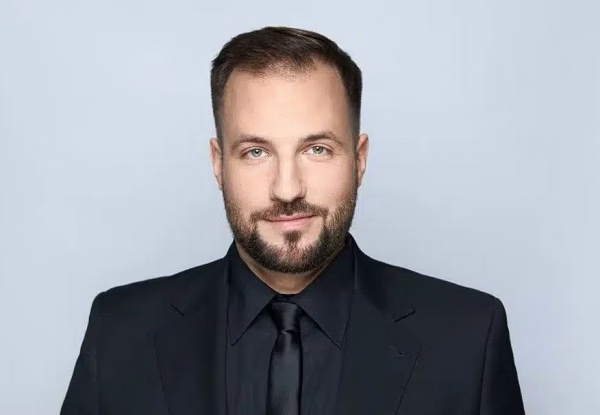Not even a month ago, during the Conference of the Coalition for Intergenerational Dialogue held in the Polish Senate, we expressed concern about the state of the Polish education system: the dominance of academic knowledge and ineffective teaching methods focused on delivering theoretical content that students must absorb, pass exams on, and then often forget, as they rarely use it in practice. Meanwhile, the Warsaw School of Economics (SGH) is launching a new postgraduate program based on a completely different model of education.
The idea came from Ornsson Solutions, and the initiative is supported by the TROP Group, which is preparing part of the teaching staff consisting of business practitioners—experts who also know how to teach adults effectively.
What is this program? Monika Kozłowska interviews Piotr Falfus, CEO of Ornsson Solutions.
Monika Kozłowska: The SGH postgraduate program in Employee Development Management and HR Controlling – how does it differ from other HR-related fields of study? What makes it unique?
Piotr Falfus: As the name suggests, the program focuses on two key elements: systematic employee development management and HR controlling.
It is no coincidence that the program was launched by the SGH Institute of Management. The approach to these topics is taken from a strategic business perspective, because these areas have a broad impact on the organization as a whole. That’s why the first module is entirely dedicated to corporate strategy and its relationship to HR functional strategy. We want to show, step by step, how to assess and analyze the knowledge landscape in a company in line with best practices, how to plan development actions that positively impact corporate strategy, how to manage internal and external development initiatives, and how to evaluate their effectiveness.
In the second part, we will demonstrate what and how can be measured and valued in HR, how to do it, and then how to present the results in a compelling way. Thanks to internal negotiation training, students will be able to confidently approach the Management Board with concrete data to support their HR goals.
Another crucial module covers managing organizational culture, which directly affects all the above areas. This includes cultural training, which is increasingly important in today’s globalized workplace, especially as more Polish managers take on high-level international roles.
We also incorporated the latest market trends that modern HR professionals should know – including an overview of AI solutions and popular development tools, managing the so-called Generation Gap and Gen Z, as well as working with Power BI.
M.K.: Sounds like a highly practical approach to knowledge-sharing – from real-life HR cases to tools and solutions that help meet challenges and achieve goals. What inspired this program structure?
P.F.: We listen to the market and business. Thanks to our wide exposure to companies across different industries and sectors, we see firsthand what skills are lacking (or highly useful) and which learning methods are most effective. We found full alignment with SGH in these areas. That’s why the program we proposed—one we also discussed with our clients—was accepted by SGH.
M.K.: Why did you decide to approach this particular university?
P.F.: Credit goes to Ewa Rosik, Head of the Training Department at Ornsson Solutions and the originator of the program. She had successfully carried out a previous project in cooperation with SGH, which gave us confidence in their openness.
M.K.: So the idea came from you, you proposed the curriculum—and what happened next?
P.F.: We were also allowed to recommend lecturers, and we gladly invited top-level practitioners who hold executive positions at leading global organizations. Among them are Katarzyna Paszkiewicz, HR Manager for the EER and Benelux region at 3M; Kaja Zielonka-Foryś, HR Director and board member in international aerospace corporations; Rafał Salamonik, mentor with the Polish Human Resources Management Association and Youth Business Poland, with experience at Polkomtel, Play, Alior Bank, BNP Paribas, and Żywiec Group; Ewa Migo, HR BP & Talent Development at Michael Page; Przemysław Maślankiewicz, an expert in Microsoft technologies and Business Intelligence tools; and Ryszard Werecki, CEO of PC Open Sp. z o.o. I wouldn’t want to leave anyone out, but listing all their achievements would take hours and still wouldn’t do them full justice.
M.K.: The list of invited experts on the program’s website is certainly impressive. How did you manage to convince them to join the project?
P.F.: Surprisingly, it wasn’t that difficult. These are people who love to share their knowledge. For some, teaching in a postgraduate program was actually a dream—they just hadn’t had the opportunity until now.
M.K.: Perhaps because they’re practitioners, not academic lecturers?
P.F.: Possibly.
M.K.: And that’s where TROP comes in.
P.F.: Exactly. We invited the TROP Group, with whom we have positive experience from past collaborations, to support our experts in delivering their practical knowledge as effectively as possible to adult students. These are adult learners, and TROP has scientifically proven methods for teaching – you call it “creating an educational situation,” if I’m not mistaken?
M.K.: That’s right. It’s a situation where participants are learning rather than being taught. They develop through experience, while also gaining the skills to later create similar situations themselves. In practice, the trainer “teachs how to teach”; the practitioner-lecturer gains this skill and passes it on to students, who then apply it in their own organizations.
P.F.: That fits perfectly with the whole concept of the program. We care most about practical skills and competencies. This is reflected not only in the teaching method but also in the cause-and-effect structure of the curriculum, where materials introduced in one course are applied in the next. This way, students understand the entire process and can more easily implement new solutions in their organizations.
M.K.: Can you give an example?
P.F.: Sure. In the HR Controlling module, students will develop HR indicators and measurement methods tailored to their organizations. Then, the collected data will be used in Power BI workshops to learn basic analytics and dashboard creation. Finally, everything will be used in internal negotiation workshops, where students will work toward achieving their HR goals using the materials they prepared earlier.
M.K.: Pure practice and logic without unnecessary theory. So besides people who value their time and a hands-on approach, who else is this program for?
P.F.: For anyone who wants to learn how to effectively and practically manage the development of professional personnel, and how to translate “soft” HR topics into financial language. More specifically, I believe it will be particularly valuable for professionals working in broadly understood HR—both specialists and experts (like HR Business Partners) and managers. Our target group also includes senior-level directors and owners of smaller companies without formal HR departments, especially in the service sector. Business-minded employee development and data-driven HR decision-making are competencies that offer a real market advantage. Opportunities for growth have long ranked among the top expectations from employers, and with new roles constantly emerging, these expectations will only increase.





